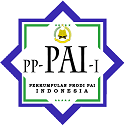TRACER STUDY LULUSAN PAI : LANGKAH AWAL PENGEMBANGAN KURIKULUM BERBASIS KKNI
Abstract
Globalization has resulted in changes of social life, its include education and employment sectors. It also affects the dynamic of Higher Education in the needs and demands of life and work. To face the challenges and global competition, Indonesia has been preparing with the issuance of Presidential Decree No. 8 of 2012 on the National Qualifications Framework of Indonesia (KKNI). It also supported by Permendikbud No. 73 Year 2013 on the application of KKNI in the field of Higher Education which expected to provide an opportunity for the college to obtain equality recognition of graduates in the working world nationally. KKNI is a statement of the quality of Indonesian human resources, where the benchmark qualifications set by the achievements of learning (learning outcomes). Level of qualification is national consensus, particularly for higher education. The department of Islamic Education (PAI) in Tarbiyah and Teaching Training Faculty (FITK) UIN Maulana Malik Ibrahim Malang has graduated hundreds of students. It is urgent to assess how far the achievement of learning has been possessed by graduates of PAI and how they adapt within development of life. This study will discuss (1). What are the indicators that can measure the profile of graduates through tracer studies of graduates PAI toward development of curriculum KKNI? (2) How is the result of tracer study of graduates PAI influence toward development of curriculum KKNI? (3) How the department prepares graduates PAI to have proper qualification based on curriculum KKNI? Results of research and analysis shows that (1) Graduate profile indicators that is used as a reference in the tracer study based on KKNI include: suitability of graduate’s work with scientific competence acquired; graduate waiting period and they first income/salary. (2) The results of tracer studies indicate that the job of respondents sampled in this study tracer is in accordance with scientific competence. As for the waiting period of working respondents most prior six months, while the respondents opinion about the completeness of campus facilities, especially in the majors PAI quite varied, including: multiply the training and development activities, improving the quality of lecturers, multiply the course of practice, additional facilities, expand more information and career opportunities sharing and others such as comparative studies, discussion room, expansion of parking area, networking, graduate network, tightened admission, lowered tuition fee, cost for free training and more. (3) The efforts of PAI in preparing the graduate in accordance with the curriculum KKNI, conceptually classified in three things: responsive, preventive and solution efforts. These three things are intertwined, so that some of the efforts made at the same time cover three concepts at once. The efforts that have been made include efforts in academics, human resources, media, technology, finance and its cooperation with stakeholders.
References
Brennan J, M Kogan and U Teichler. 1996. Higher Education and Work. Jessica Kingsley Publication. London, Bristol, Pennsylvania.
Kellermann P and G Sagmeister. 2000. Higher education and graduate employment in Austria. European Journal of education Vol 35 No 2 J.
Lexy J. Moleong, 2007. Metodologi Penelitian Kualitatif (Bandung: Remaja Rosdakarya.
M. Djunaidi Ghoni dan Fauzan Almanshur, 2009. Petunjuk Praktis Penelitian Pendidikan,Malang: UIN Press.
Millington, C., n.d, The Use of Tracer Studies for Enhancing Relevance and Marketability in Online and Distance Education, Barbados Community College.
PP RI Nomor 8 tahun 2012 tentang Kerangka Kualifikasi Nasional Indonesia.
Permendikbud RI Nomor 73 Tahun 2013 tentang penerapan Kerangka Kualifikasi Nasional Indonesia Bidang Pendidikan Tinggi.
Saifuddin Azwar. 1999. Metode Penelitian. (Yogyakarta : Pustaka Pelajar).
Schomburg, H., 1995, Standard Instrument for Graduate and Employer Surveys, Postfach, Eschborn: Deutsche Gesellschaft für Technische Zusammenarbeit (GTZ) GmbH.
Schomburg, Harald. 2003. Handbook for Graduate Tracer Study. Moenchebergstrasse Kassel, Germany: Wissenschaftliches Zentrum für Berufs- und Hochschulforschung, Universität Kassel.
Sugiyono, 2007. Memahami Penelitian Kualitatif. Bandung: Alfabeta.
Suharsimi Arikunto, 2006. Prosedur Penelitian Suatu Pendekatan Praktik Jakarta: PT Rineka Cipta.
Sukidin & Mundir, 2005. Metode Penelitian Membimbing dan Mengantar Kesuksesan Anda dalam dunia Penelitian, Surabaya : Insan cendekia,
Teichler U. 1999. Research on the relationship between higher education and the world of work: past achievements, problems and new challenges. Higher Education Vol 38: 169-190.
York M and PT Knight. 2006. Curricula for Economic and Social Gain. Higher Education 2006 Vol 51: 565-568.
DOI: https://doi.org/10.18860/jpai.v3i2.5339
Refbacks
- There are currently no refbacks.
Copyright (c) 2017 J-PAI: Jurnal Pendidikan Agama Islam
...............................................................................................................................................................
Editorial Office:
Fakultas Ilmu Tarbiyah dan Keguruan
Universitas Islam Negeri Maulana Malik Ibrahim Malang
Jalan Gajayana 50 Malang, Jawa Timur, Indonesia 65144
Phone (0341) 552398, Faximile (0341) 552398
E-mail: jpai@uin-malang.ac.id
...............................................................................................................................................................

J-PAI: Jurnal Pendidikan Agama Islam is licensed under a CC BY-SA 4.0.
...............................................................................................................................................................
Indexed by:

















